How to Start Local Chicken Farming [Beginner’s Guide]

If you want to invest in a poultry farming business but don’t know where to start, then starting with local chicken farming is a good decision.
Starting a local chicken farming business in Nigeria is one of the best agro-business ideas for anyone wishing to generate funds without stress.
The reason is that local chickens are less stressful to rear than most other hybrid chicken breeds.
So, in this article, I am going to help you to understand what local chicken farming is all about and how to go about the business.
Let’s get started!
What is local chicken farming?
Local chicken farming is the practice of rearing local chickens to produce meat, feathers, and eggs. We already know that meat and eggs are mainly for consumption purposes and they help to meet man’s nutritional needs. However, you can also make an income from selling them.
As for the feathers, they are washed, disinfected, and used by manufacturing industries to produce pillows and jackets.
Let’s not forget that chicken dung is a good additive for growing crops. Plants make use of chicken manure thereby reducing the rate at which people depend on fertilizers.
Local chicken farming is a well-known practice across the world, especially in Africa.
Even though many local chicken farmers keep them for personal consumption, it has a high potential in generating foreign exchange through the exportation of their products.
What are the types of local chicken breeds?
When you hear local chicken breeds, it refers to indigenous or native chicken breeds of a country. These local chickens are raised and bred in the same country.
So, in Nigeria, we have the Nigerian Indigenous Chicken (NIC). These local chickens are of two types and they are classified based on location. They are the Fulani Ecotypes and Forest Savannah (Yoruba) Ecotypes.
Ecotypes mean that the chickens are adapted to the local environmental conditions of the Fulani and Yoruba regions respectively.
1. The Fulani Ecotypes:
This type of local chicken is the heavy ecotypes. They are found in the Sahel and Guinea savannah part of Nigeria, the cattle Kraals, and the Montane regions of the North.
The birds usually weigh between 0.9kg and 2.5kg at maturity.
2. The Yoruba Ecotypes:
The Yoruba local chickens are the light ecotypes. They are found in the Rainforest, Swamp, and Derived Savannah zones of Nigeria. Their weight at maturity is between 0.68kg to 1.5kg.
The major difference between these two breeds, Fulani ecotypes, and Yoruba ecotypes, is that the former has a higher body weight than the latter.
Other classifications of local chickens breeds
Besides classification based on location, local chickens can also be classified based on their feathers as well as body structure.
1. Based on feathers:
Local chickens can also be grouped based on their feathers.
Therefore, the Nigerian Indigenous Chicken could be classified under Normal feathered breed and Frizzled feathered breed.
2. Based on body structure:
Based on body structure, we have Naked Neck Chickens and Dwarf Chickens.
What are the characteristics of a local chicken?
So, how can you identify a local chicken? Here are a few features of a local chicken;
- They are usually found in black, brown, and dark red colors.
- Their eye color is dark brown, light brown, and dark red. They are sharp and always alert.
- Local chickens have smooth beaks and claws.
- Bright red comb and wattle.
- They are usually very small in size.
- Their meat and eggs have good, attractive pigmentation, leanness, and taste which makes them suitable for special Nigerian dishes.
- They are mostly found in rural and semi-urban places.
- Local chickens reach sexual maturity between 133-169 days.
- They are poor egg producers, as they lay just 40-50 eggs in a year.
- The light (Yoruba) ecotypes chickens lay more eggs than the heavy (Fulani) ecotypes.
- Its clutch size, egg length, egg weight, and thickness are 7.86cm, 4.52cm, 39.03g, and 3.80g respectively.
- They can hatch their eggs and brood their chicks.
What are the benefits of local chicken farming over hybrids?
Here are a few benefits of local chicken farming;
1. They can survive harsh weather:
Local chicken breeds are sturdy and can stand various weather conditions.
Unlike hybrid chicken breeds, they survive longer in extreme weather conditions.
2. They are independent chickens:
Local chicken breeds are mostly free rangers. This means they do well grazing in the field and feeding on insects.
They can find their food and protect their chicks even without supervision.
3. They require little funds in handling them:
About 70% of the cost of rearing hybrid chickens goes into buying chicken feed. However, that is not the case with local chicken farming.
Since local chickens are independent chickens, they can find food for themselves. So, you only spend a little to supplement their meals.
4. Its management process is less tiring:
This is another important advantage of rearing local chickens. Local chickens always return to their pen at night after grazing during the day.
Also, we have talked about local chickens being able to look for food for themselves. Hence, they make less mess in their pen since they are always out grazing. As a result, cleaning and other management activities will be less frequent.
5. They are immune to certain diseases:
Local chickens have a stronger immune system which prevents them from falling sick easily.
This is one of the major reasons why they are preferred more than commercial chicken breeds.
6. You can make money from local chicken farming:
Most people prefer to eat local chicken meat over commercial chicken meat. As a result, local chicken farmers can make money from growing local chickens.
This is a viable business, especially in rural areas in most African countries.
What are the disadvantages of local chicken farming?
It is a norm that anything that has advantages has disadvantages. This is so that you can make a well-guided and unbiased decision. So, what are the disadvantages of local chicken farming?
Here they are;
1. They produce little meat:
This is a major disadvantage of keeping local chickens. The reason is that local chickens usually have a very small body size. So, their carcass is also very small.
2. They have a slow growth rate:
Local chickens have a very slow growth rate. It can take several months before a local chicken reaches a reasonable size for consumption.
If you want a chicken that will grow very fast, then opt for hybrid chicken breeds that reach maturity within 8 weeks.
3. Their eggs are usually small:
Just like they have a small body size, local chickens also lay eggs that are small in size.
4. It is not suitable for commercial purposes:
Most people who rear local chickens do so for local consumption. That is because it is not in high demand like the hybrid chicken breeds.
People prefer hybrid chicken breeds to it because they are more suitable for meat and egg production than local chickens.
Also, its slow growth rate puts a lot of farmers away.
How do I start my local chicken farm?
If you have the intention to start your own local chicken farming business, then follow the steps below.
1. Get a good location for the local chickens:
This is very fundamental to the success of your local chicken farming business. The first thing you must do is to get a good location for the local chickens.
It should be suitable depending on the purpose of rearing the local chickens. If it’s for commercial purposes then it should be close to the market where you can easily sell. Also, if it’s for domestic use, certainly it would find comfort in your backyard.
2. Construct a poultry house for the local chicken:
Constructing a poultry house for your local chickens is very important. When constructing the poultry house, it should meet the following qualities;
- It should be rainproof.
- The walls of the poultry house should be hard and smooth to avoid pests and mites.
- It should be wide enough to harbor chicks.
- There should be a nest where the chickens can lay their eggs.
- The poultry house must also be easily accessible.
- Ensure it allows good ventilation for the birds.
- The pen must protect the chickens from windy rains.
- It should be convenient and easy to clean.
- There should be a good lighting and heating system for the birds.
- You should have different poultry houses to keep the chickens according to their age.
3. Put necessary poultry farming equipment in the poultry house:
After building your poultry house, the next thing is to bring in the necessary equipment for growing local chickens.
The poultry farming equipment will help to ease the stress on the farm thereby increasing productivity.
Some of the equipment you will need in your poultry farm include the following;
- Feeding trough.
- Drinkers.
- Light bulbs, charcoal stove for heat, etc.
- Cleaning materials like brooms and parkers, disinfectant, etc should be kept in the poultry house for easy management.
4. Buy good local chicken breeds:
The next step is to buy good local chicken breeds. You can purchase local chickens from a hatchery or an existing local chicken farm in your area. This will enable you to commence your own business immediately.
For a healthy business, healthy chicken breeds are very essential. Ensure that the chicks are healthy before purchasing them to avoid losses at the beginning of your business.
5. Provide food and water for the local chickens:
Now that the local chickens are on your farm, you need to feed them well. Local chickens have a very wide variety of food that they can eat. You can feed them with formulated poultry feed, maize chaff, wheat bran, or your kitchen waste.
Fruits and vegetables are not bad ideas, only make sure it is fresh and chopped into sizes the chicken can swallow.
Local chickens need a lot of carbs to meet their energy needs and make them put on weight. But to make the local chickens grow faster, you need a high protein diet like bone meal, fish meal, and soya beans.
There are other animal and plant-based sources of high-quality proteins for your chickens. Just make sure that you are feeding the birds with those.
6. Maintain hygiene in your local chicken farm:
Even though local chickens are not easily affected by a lot of poultry diseases, you still need to maintain high standards of hygiene. Having a clean environment helps to reduce the spread of diseases and pest infestation.
A healthy chick entails a healthy harvest in terms of good meat and egg thereby increasing profit. Therefore, maintaining good hygiene is an essential feature in starting your local chicken farm.
How to improve productivity in your local chicken farm
What is the essence of having a business when you don’t aim to have an improvement in your productivity?
Well, you can consider these points as a guide towards the improvement in the productivity of your local chicken farm.
1. Keep daily records on the farm:
This is an essential feature in the improvement of one’s business. Keeping records of what goes in and out of your farm is very important. It helps you to calculate and understand the processes of managing your local chicken farm.
Here are some records that you need to keep on your poultry farm:
- Records of how many chickens are due for reproduction.
- The number of chickens available in the poultry house.
- Number of chickens in isolation.
- How many eggs are hatched?
- How many eggs are broken eggs?
- What is the amount of feed given to the chicken per day?
These records will help you to improve the productivity level of your local chicken farm.
2. Carry out daily sanitation on the farm:
Daily sanitation is another important activity that will positively affect the growth of your poultry farm.
Ensuring a clean environment helps to reduce the spread of diseases and parasites. As a result, it is a good way to reduce the number of deaths in the chicken house.
So, you need to make sure that you sweep off the chickens’ dung regularly. Also, do not forget to clean the feeding troughs and drinkers.
3. Feed the birds well:
All living things need good food to grow and survive. So, if you want your local chickens to grow fast and reproduce, you must feed them well.
Give them good food and fresh clean water every day.
4. Temperature management:
We already know that local chickens can survive harsh weather conditions than hybrid chicken breeds However, you don’t need to expose them to such conditions longer than they can endure. Therefore, you must ensure a temperature range of 320C – 350C.
Also, maintain a relative humidity of 50% to 70%. This will help to improve the health status of the chickens.
A temperature that is too hot or too cold is not advisable because it reduces the activity of the chickens. For instance, there will be a reduction in activities like eating, drinking, and running around which are essential for survival.
Conclusion
As a beginner in the poultry farming business, you should test the waters by starting with local chicken breeds. They are hardy and easily adapt easily to diverse environments.
This article is a useful guide that will help you to achieve success in local chicken farming.
Please, share this article now to help someone who may need it.
Reference:
- Newcastle Disease; Causes, Symptoms, Treatment and Prevention Tips
- Poultry Farm Equipment: All You Need to Start Poultry Farming
- 15 Awful Reasons Why Your Chickens Are Not Laying Eggs Yet And Solution
- What Can You Feed Chickens to Make Them Lay Eggs?
- What is a Pullet chicken?
- How to Make The Best Organic Chicken Feed For Your Farm

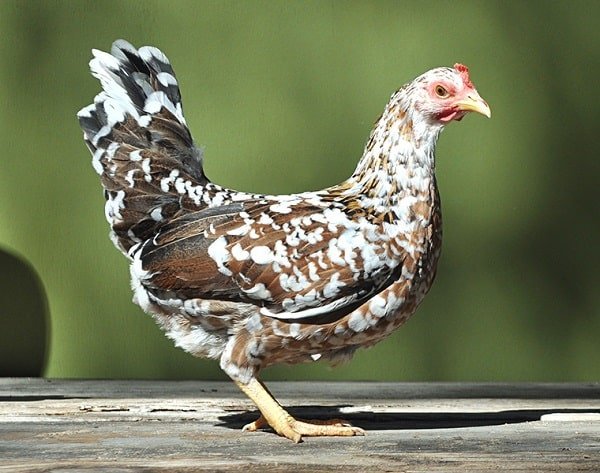

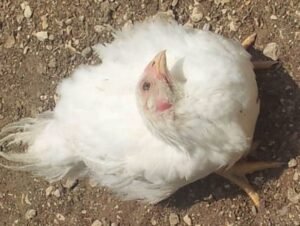
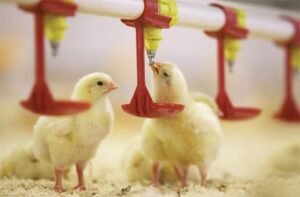
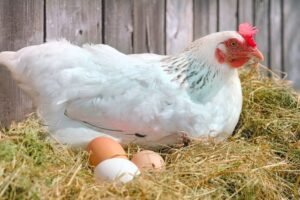
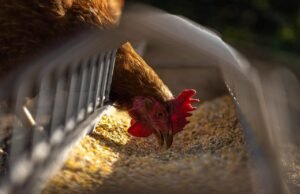
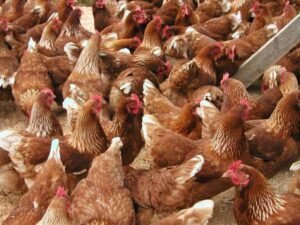
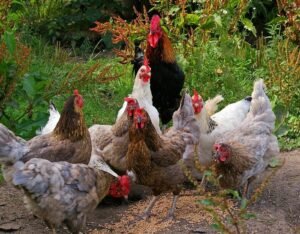

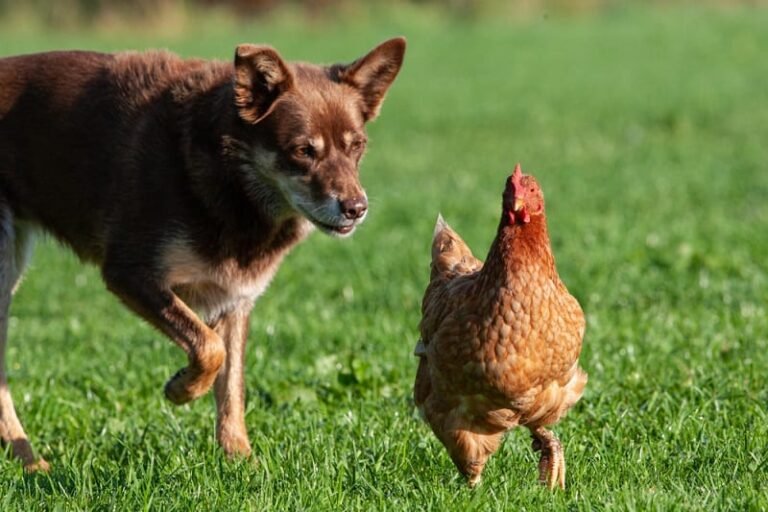
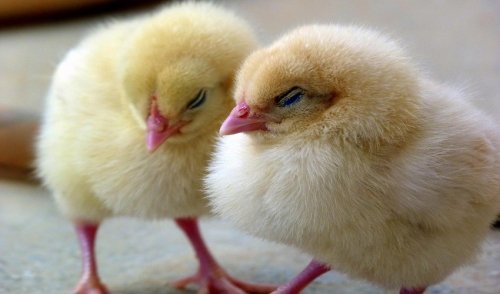
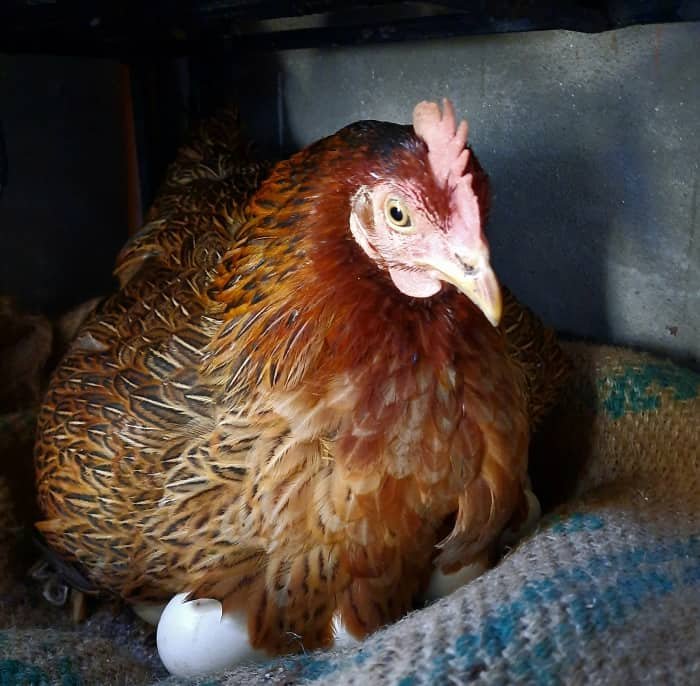

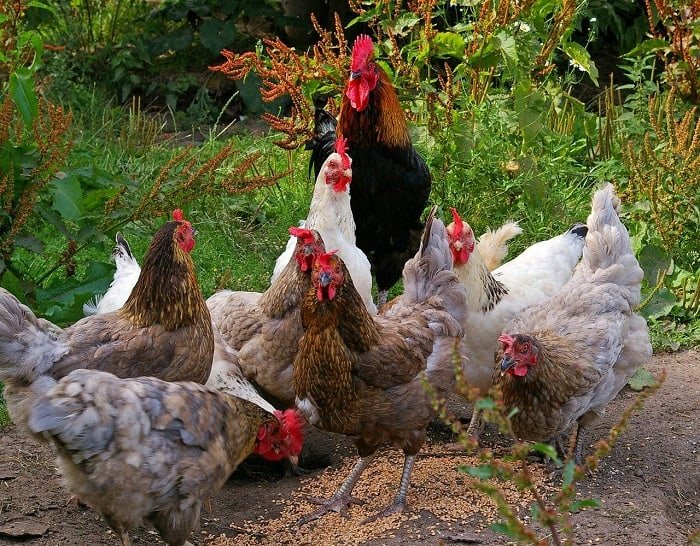
What can i feed my local chicks other than chicken feed
Yes you can.
Thanks so much, it is really inspiring… Hoping to get an article on fish farming also
Thank you for your kind remarks. We have a category for fish farming which we labelled as “Aquaculture.” You can check out that category for all information about fish farming and aquaculture.
Please, how many months will it take a Fulani foul to grow for marketing?
I stated mine March
Hi am Mohamed Bundor Morray from Kailahun District Eastern part of Sierra Leone West Africa, I wanted to engage in local poultry farming in my area but I needs guidelines to backup me.
Hello Mohamed, I hope the information on this page helped you to start your own local chicken farm. If you have specific questions to ask, you can leave a comment under this reply and it will be attended to. Cheers.
Thanks for open our eyes
You’re welcome.
Good day sir
Please I need to start the local chicken farming in my village which is Rural area in Enugu state,
And I need company to work with or buy from
You can contact the a chicken hatchery near you to get started.
Waooh I have liked it and I believe it will help me a lot in my starting business, thanks
Awesome. That’s the energy.
Thanks bro for your advice , i started mine some months back but frequent outbreak of disease is putting me at aloss.
Send an email to [email protected] to get personalised help.
So lovely
Thanks.
keep to all the advice and tips in the article. They are well crafted and a full package to guide any beginner.
I want to add that you should buy all the known vaccines and drugs used for the broilers and layers and use them for the local fowls. It will produce excellent results. Not only that get male Noilers to mate with the local Fulani hens or the Yoruba hens. The result will be amazing. Telling you because I have practiced it.
Awesome. Thanks for adding those tips.
Thanks for the information. I hope to start before end of October 2021.
Thanks again.
Kudos. I love your spirit.
I love this article,I hope to venture into this local poultry farm and hole it’s successful
That’s great. I wish you good luck.